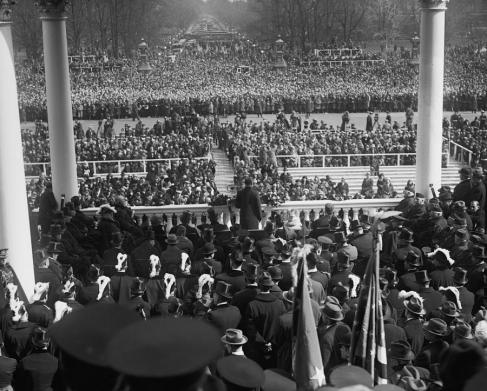“While it is wise for the President to get all the competent advice possible, final judgments are necessarily his own. No one can share with him the responsibility for them. No one can make his decisions for him. He stands at the center of things where no one else can stand. If others make mistakes, they can be relieved, and oftentimes a remedy can be provided. But he can not retire. His decisions are final and usually irreparable. This constitutes the appalling burden of his office. Not only the welfare of…his countrymen, but oftentimes the peaceful relations of the world are entrusted to his keeping. At the turn of his hand the guns of an enormous fleet would go into action anywhere in the world, carrying the iron might of death and destruction. His appointment confers the power to administer justice, inflict criminal penalties, declare acts of state legislatures and of the Congress void, and sit in judgment over the very life of the nation. Practically all the civil and military authorities of the government, except the Congress and the courts, hold their office at his discretion. He appoints, and he can remove. The billions of dollars of government revenue are collected and expended under his direction. The Congress makes the laws, but it is the President who causes them to be executed. A power so vast in its implications has never been conferred upon any ruling sovereign” — Calvin Coolidge, The Autobiography, pp.199-200 [1929]
The Importance of the Obvious
A Blog on the Cultural Significance of Calvin Coolidge
- Comment
- Reblog
-
Subscribe
Subscribed
Already have a WordPress.com account? Log in now.
%d
